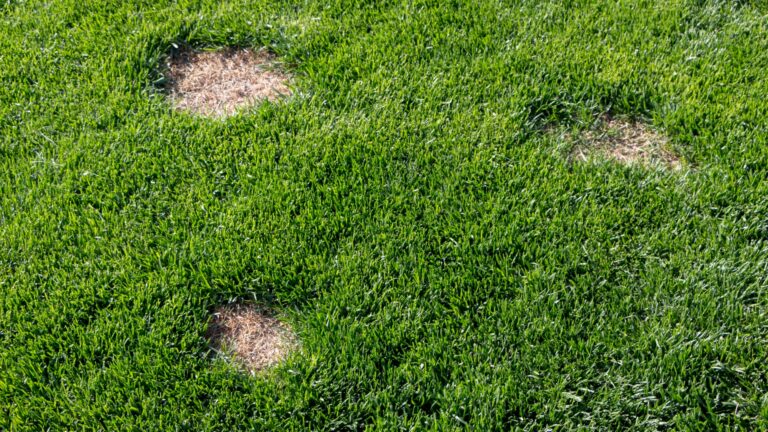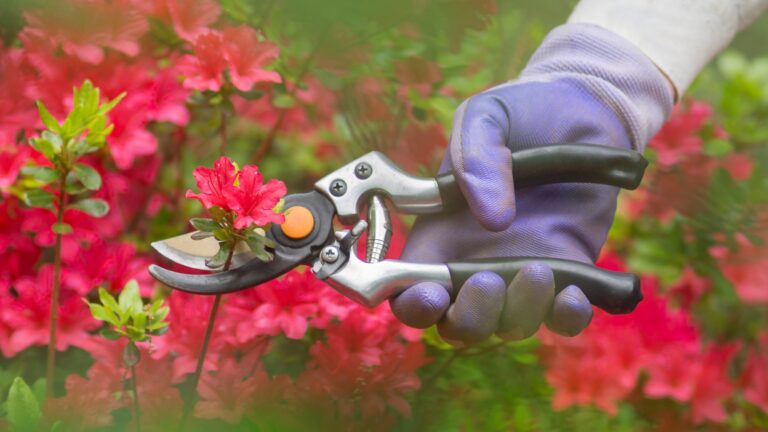How To Handle A Coyote In Your Tennessee Yard (And 3 Mistakes To Avoid)
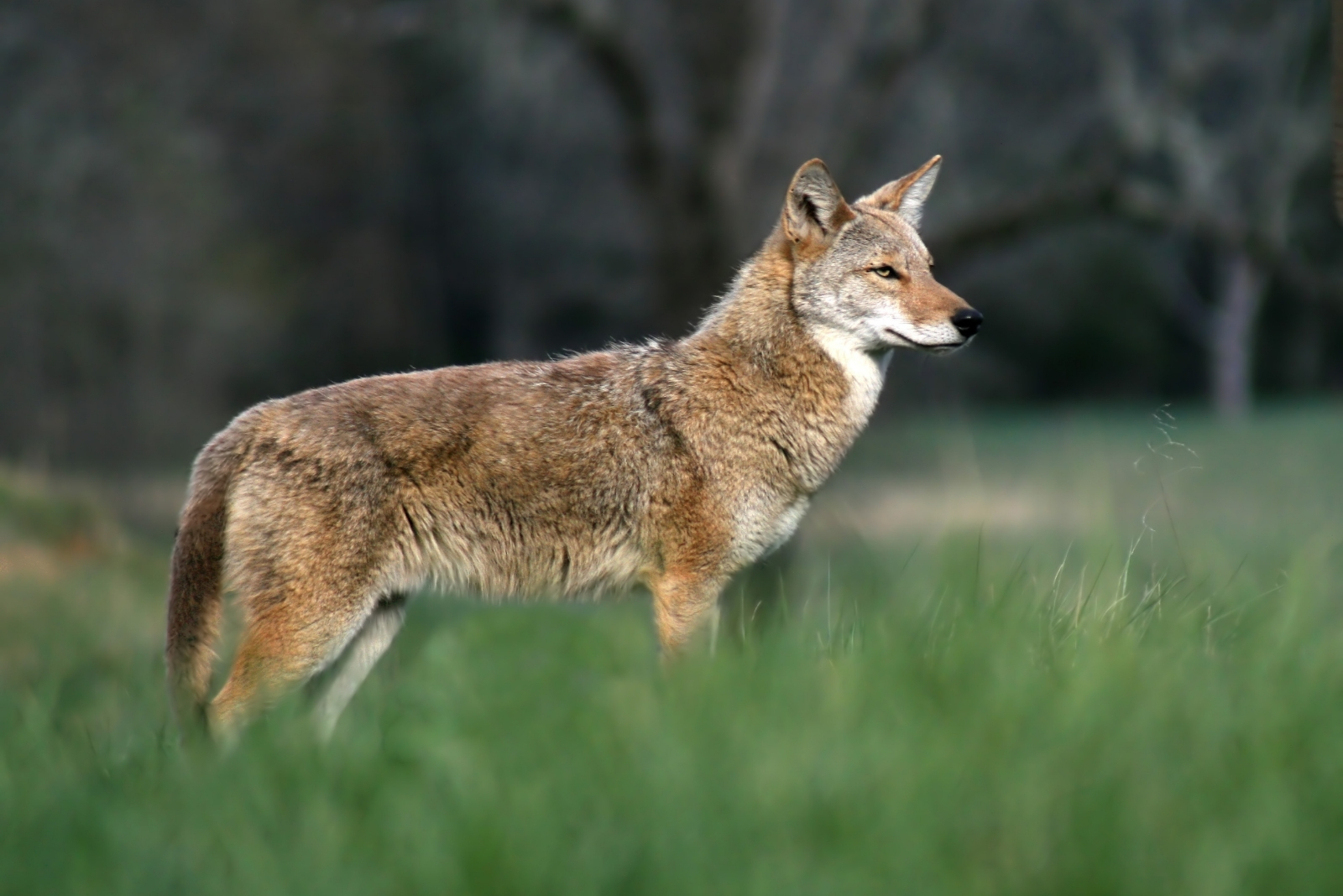
Seeing a coyote wander through your Tennessee yard can be surprising, even a little thrilling—but it’s important to stay alert. I’ve learned from a few encounters that small actions can make a big difference in keeping both you and the coyote safe.
There are easy, natural ways to encourage them to move along without any trouble. At the same time, a few missteps can invite more problems than you’d expect.
Let’s explore the best approaches and the mistakes you’ll want to steer clear of.
1. Install Motion-Activated Sprinklers
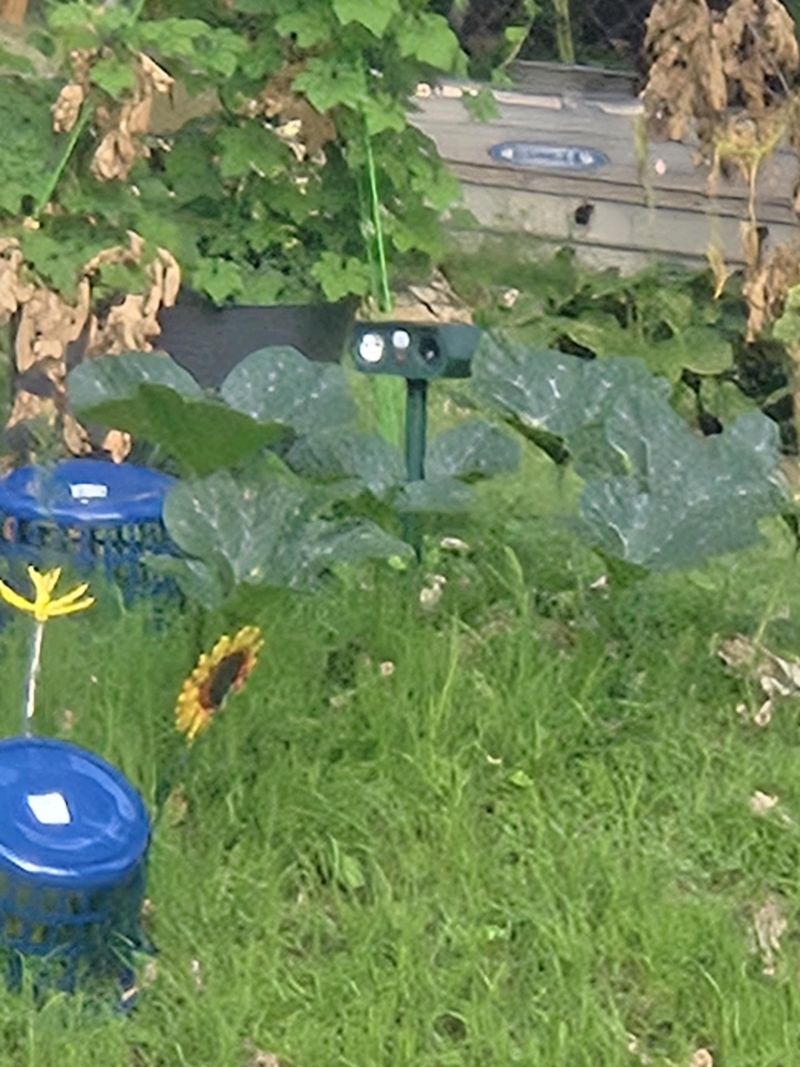
Motion-activated sprinklers deliver a startling but harmless spray of water when triggered by movement. Many Tennessee homeowners find these devices particularly effective during summer months when coyotes are more active.
The sudden burst of water creates an unpleasant surprise that teaches coyotes your property isn’t welcoming. Plus, your garden gets a bonus watering in the process!
2. Secure Your Trash Cans

Hungry coyotes can’t resist the smell of garbage. Locking your trash bins or using wildlife-proof containers eliminates this tempting food source that might attract them to your Tennessee property.
Consider storing bins inside your garage until collection day. Removing the reward (easy meals) is one of the most effective ways to discourage these opportunistic visitors from making themselves at home.
3. Install Proper Fencing
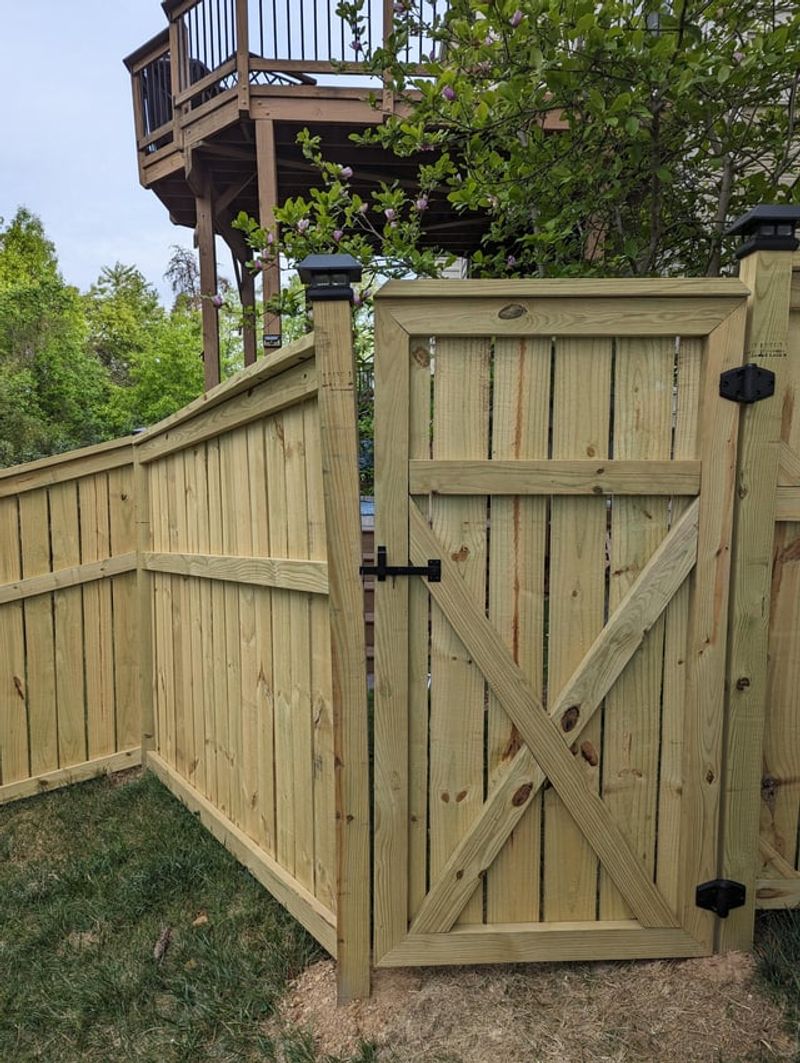
Coyotes are impressive jumpers and diggers, requiring fences at least 6 feet tall with an additional underground barrier. Across Tennessee, homeowners have found success with fencing that extends 12-18 inches below ground.
Adding a coyote roller (a freely spinning pipe) along the top prevents them from gaining the leverage needed to climb over. This natural barrier creates a physical boundary they’ll likely respect.
4. Remove Attractants From Your Yard
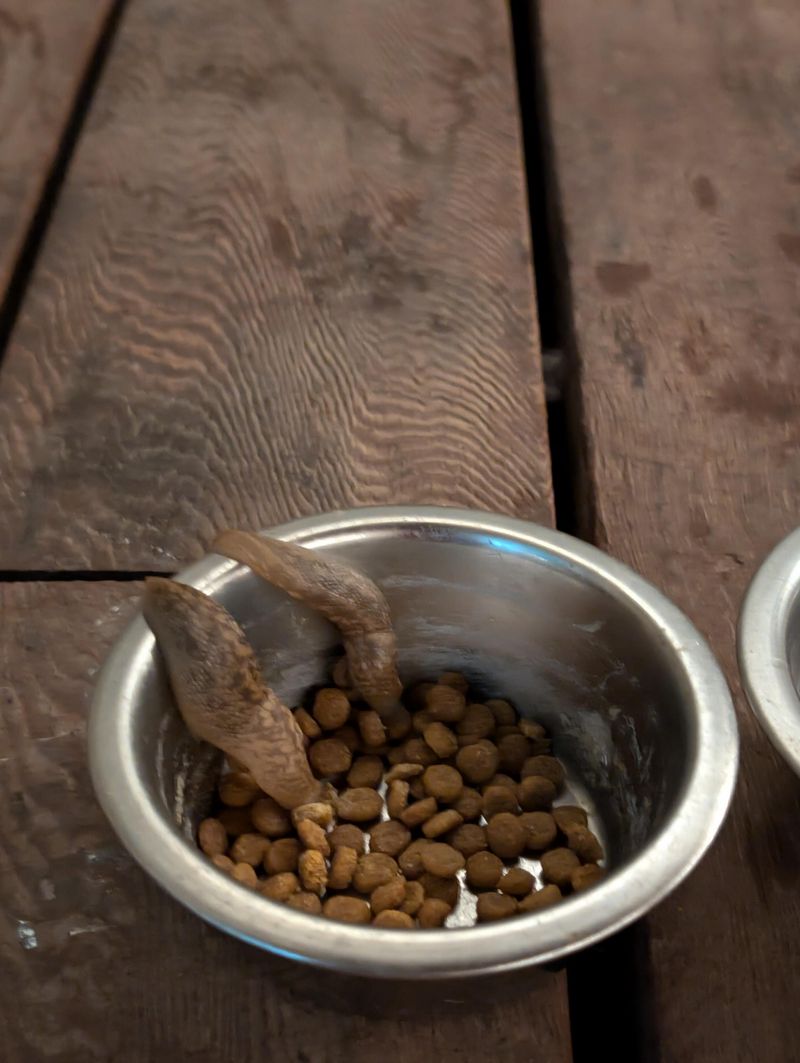
Fallen fruit, pet food, and birdseed are like sending coyotes a dinner invitation. Tennessee’s mild climate means food sources can be available year-round, so regular yard maintenance is crucial for prevention.
Pick up fallen fruit promptly, feed pets indoors, and use bird feeders that minimize spillage. Remember that water sources like decorative ponds can also attract thirsty coyotes during hot Tennessee summers.
5. Use Sound and Light Deterrents
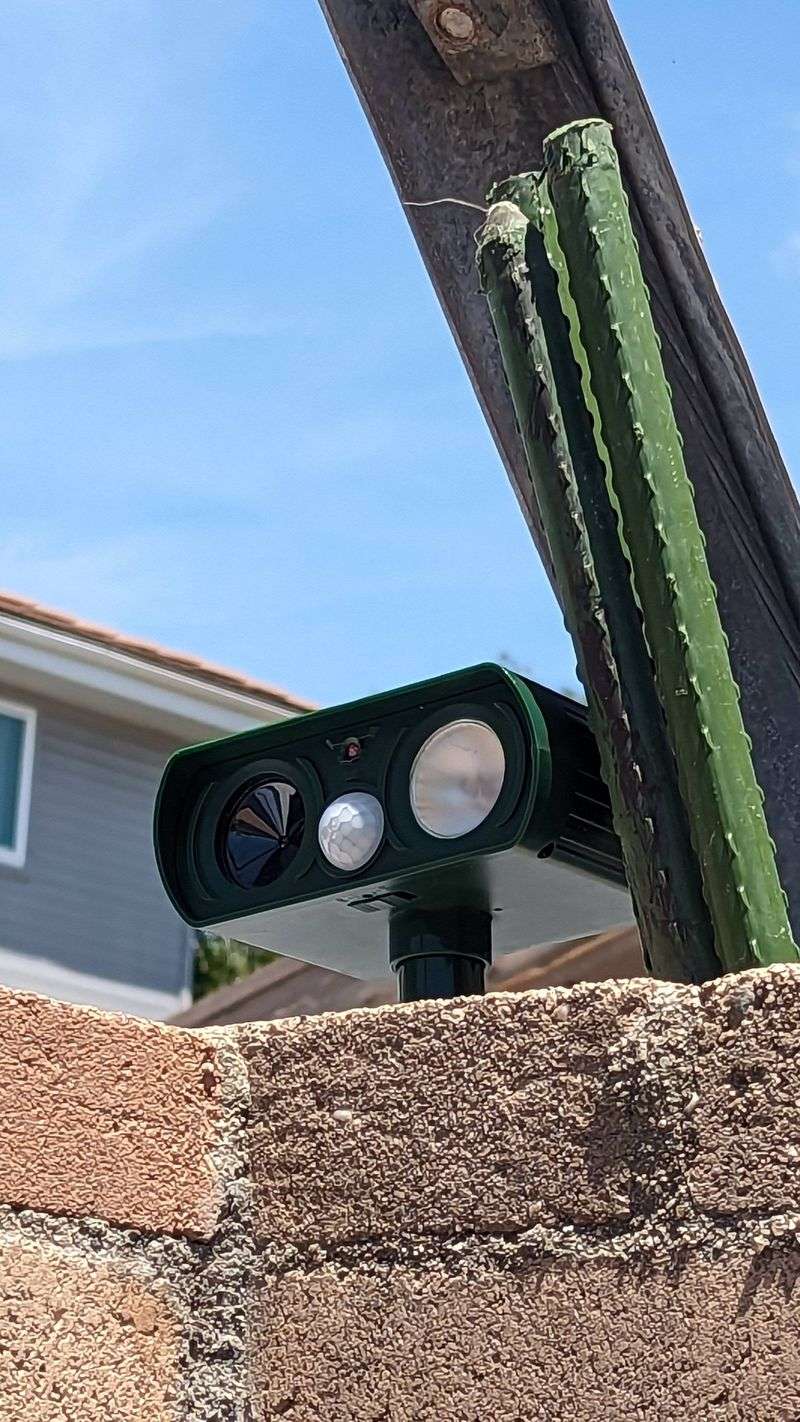
Coyotes prefer to avoid human activity. Motion-activated lights and sounds create an uncomfortable environment that makes your Tennessee property less appealing to these cautious creatures.
Wind chimes, solar-powered flashing lights, or even a portable radio can discourage visits. Many Tennessee homeowners rotate these deterrents regularly to prevent coyotes from becoming accustomed to any single method.
6. Practice Hazing Techniques
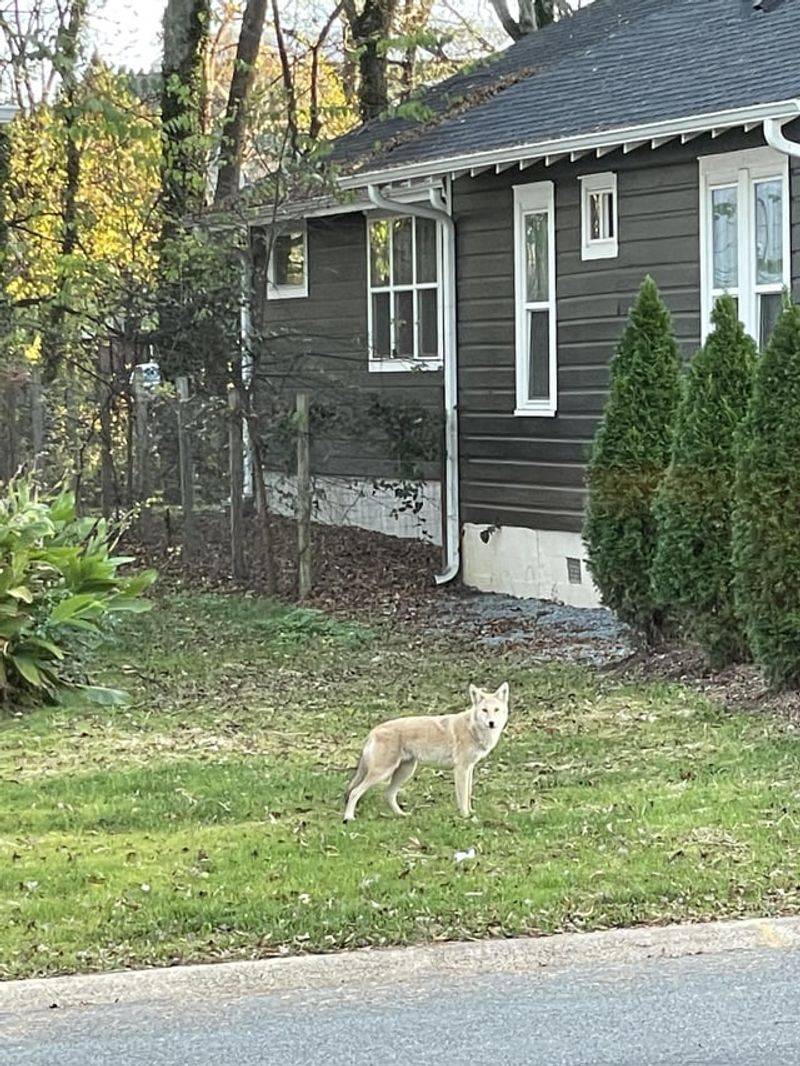
Hazing teaches coyotes to fear humans without causing harm. When spotting one in your Tennessee yard, make yourself appear large, wave your arms, and make loud noises to scare them away.
Carry a whistle, air horn, or pot and pan to create startling sounds. Wildlife experts across Tennessee recommend consistent hazing to reinforce that your property isn’t safe territory for coyotes to explore.
7. Plant Natural Repellent Vegetation

Certain plants naturally repel wildlife with their strong scents. Tennessee gardeners have found success with wolf’s bane, marigolds, mint, and garlic as natural deterrents around property perimeters.
These aromatic plants overwhelm coyotes’ sensitive noses while beautifying your landscape. The bonus? Many of these plants thrive in Tennessee’s growing conditions and can enhance your garden’s visual appeal while serving a practical purpose.
8. Feeding Wild Animals
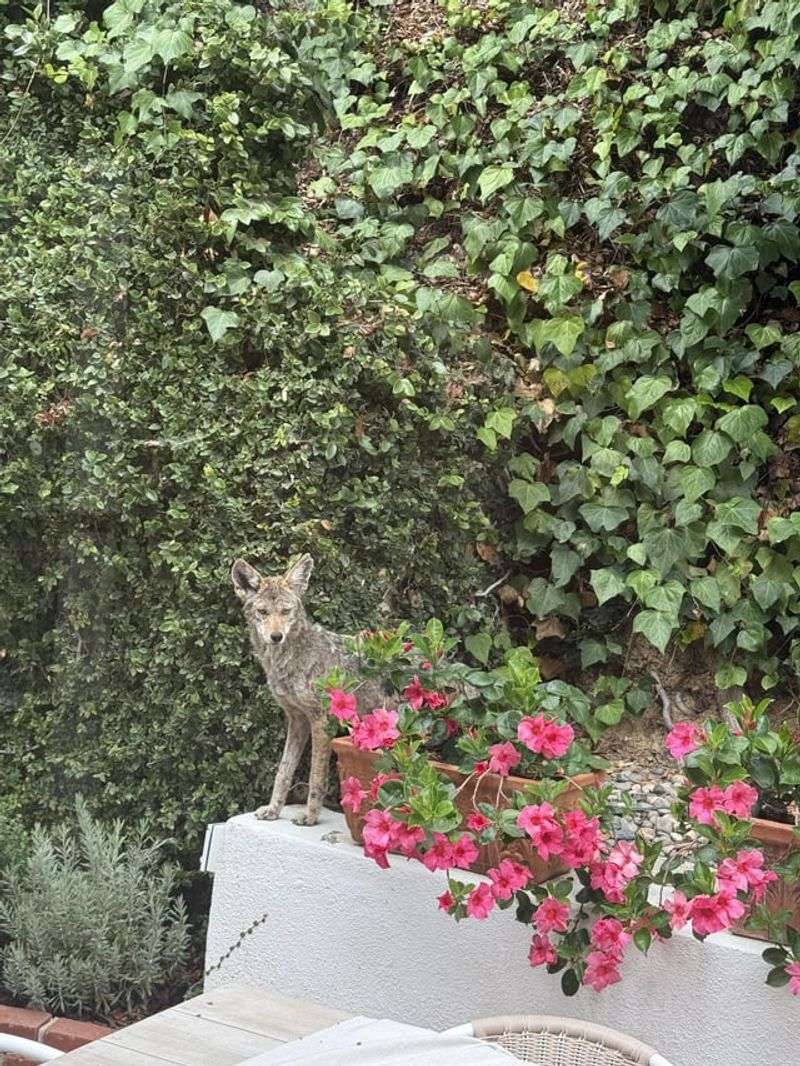
Intentionally or accidentally feeding any wildlife creates dangerous dependencies. Across Tennessee, wildlife officials report that neighborhoods where residents feed deer, raccoons or other animals see increased coyote activity.
Once coyotes associate humans with food, they lose their natural wariness. This can lead to bold behavior and potential conflicts that rarely end well for the coyote or your peace of mind.
9. Letting Pets Roam Unsupervised
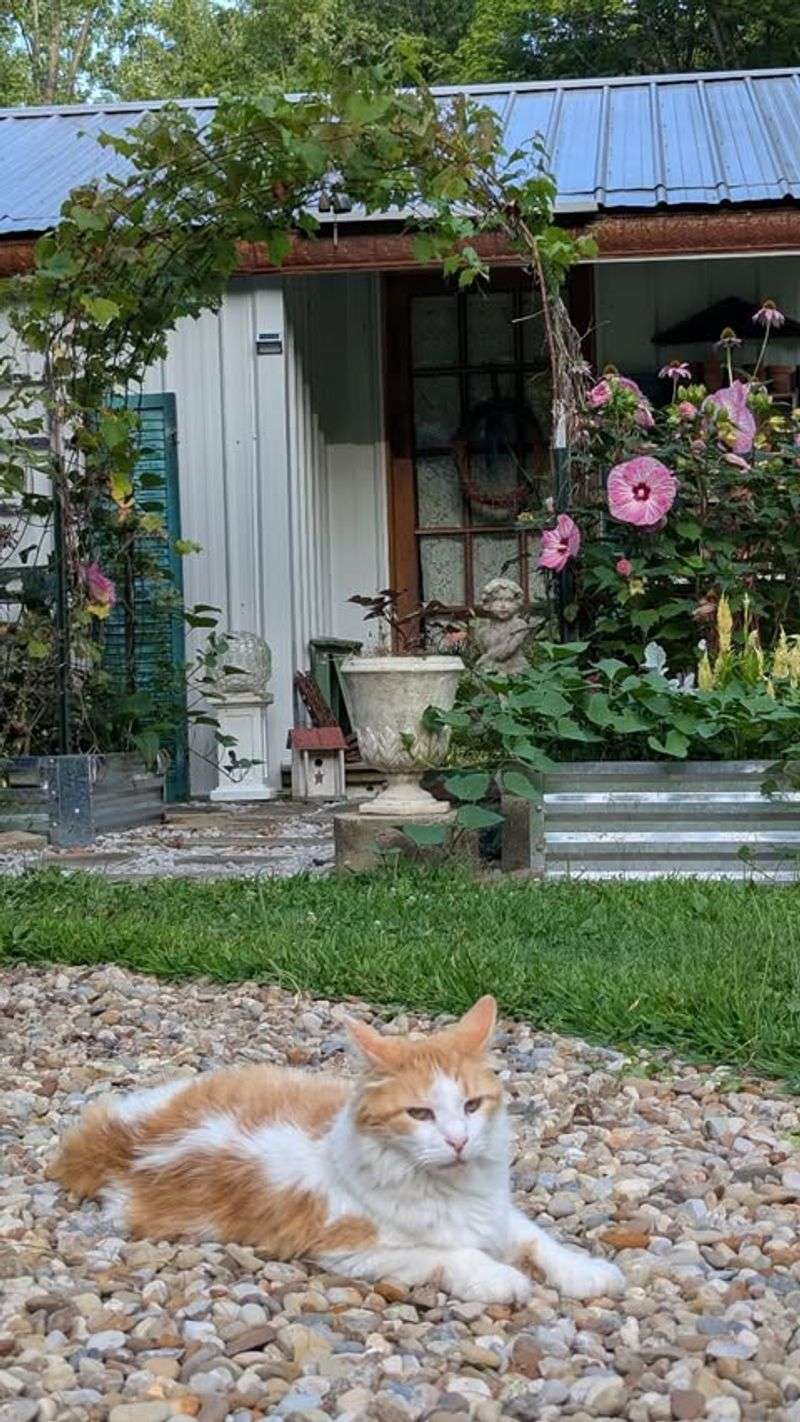
Small pets can look like prey to hungry coyotes. Throughout Tennessee’s rural and suburban areas, wildlife experts recommend supervising outdoor pet time, especially during dawn and dusk when coyotes are most active.
Keep cats indoors and walk dogs on leashes. For backyard time, remain present and vigilant. A Tennessee wildlife officer once told me, “Your presence is the best protection your pet can have.”
10. Using Poison or Traps
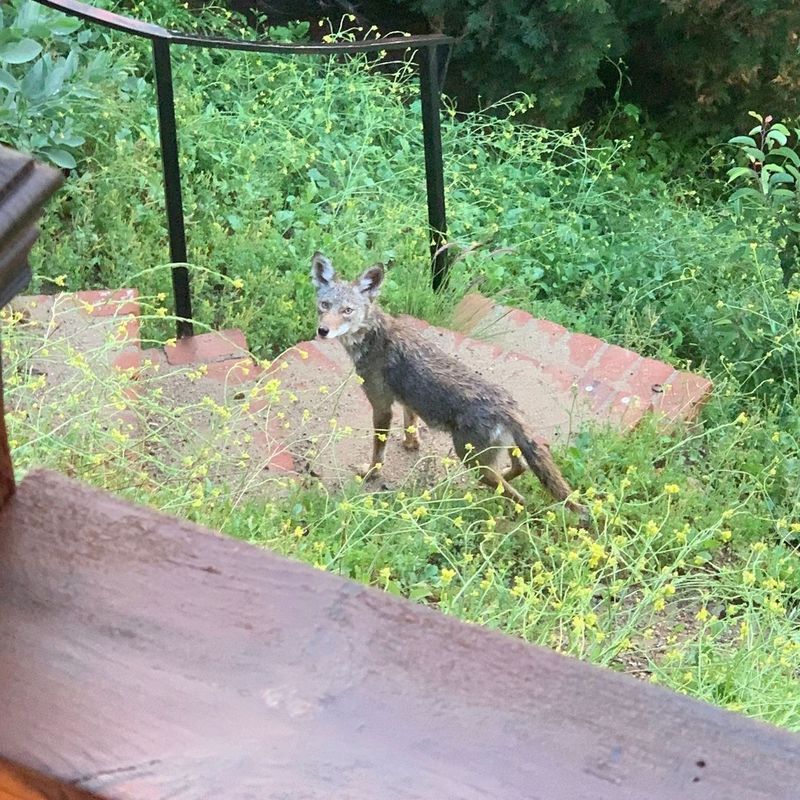
Attempting to poison or trap coyotes is illegal in many Tennessee counties and incredibly dangerous. These methods often harm unintended wildlife, pets, or even children.
Tennessee wildlife authorities emphasize that removing one coyote simply creates territory for another to move in. Professional wildlife services should handle any necessary removals, following proper protocols that respect both safety and ecological balance.

